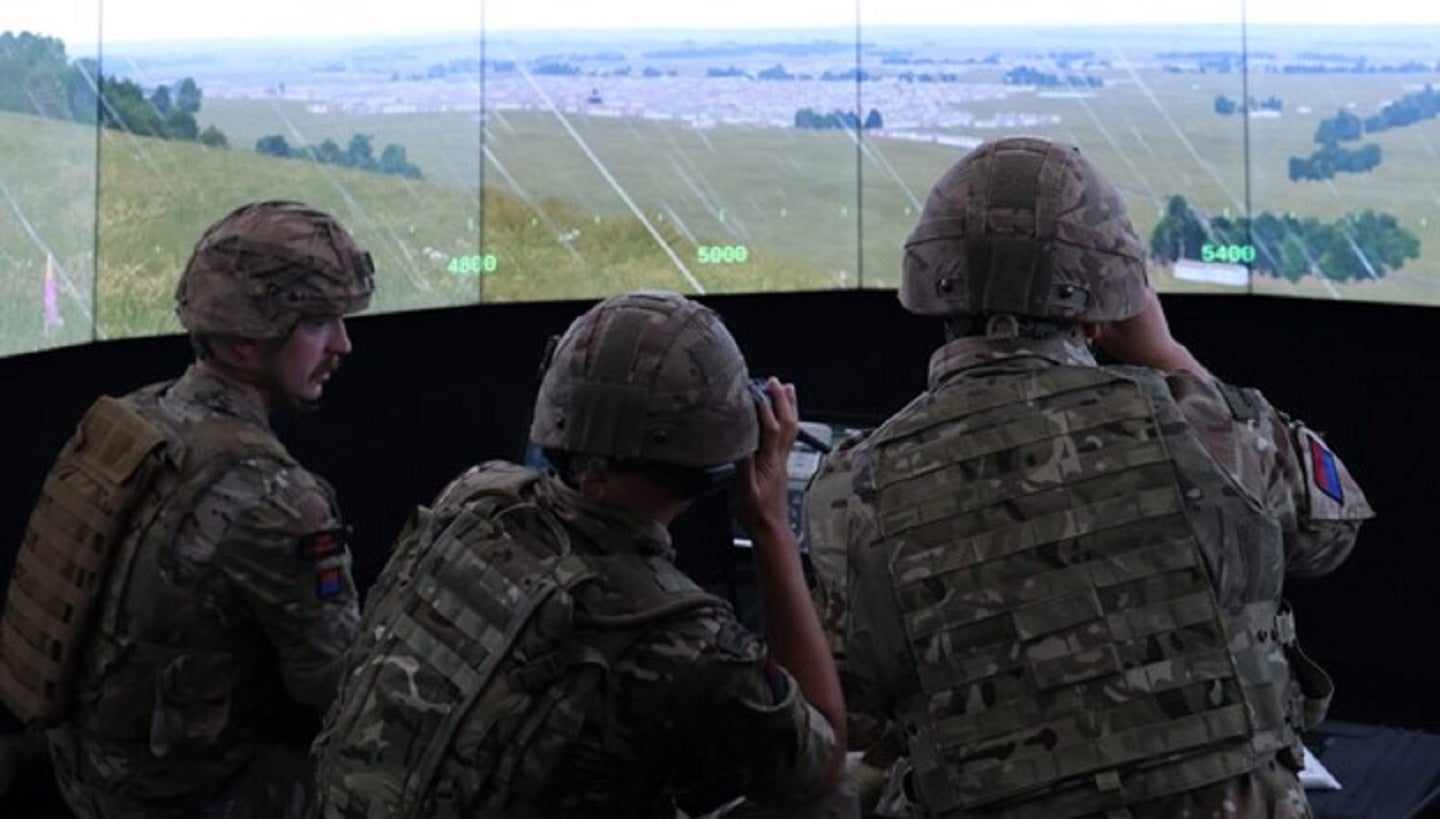
Elbit Systems UK has launched its Joint Fires Synthetic Training (JFST) capability. The system has reached initial operating capability (IOC) after the UK Royal School of Artillery accounted 4,700 hours of training with the JFST on 21 September 2023.
JFST provides immersive training using simulation technology to provide real-time training for British Army, Royal Navy and Royal Air Force personnel. the system allows the services to integrate Joint Fires, including both surface-to-surface and air-to-surface fires.
The UK Armed Forces have trained more than 300 personnel on the JFST from both the British and allied forces, including those preparing for immediate front-line deployments.
The Royal School of Artillery at Larkhill in Wiltshire have operational systems in place including an armoured capability provided by the mounted version of the trainer and three other systems in operation, of which two are simulator domes providing 270-degree vision, resulting in a high fidelity, immersive training experience.
As part of the IOC process, Interim Joint Terminal Attack Controller (JTAC) accreditation, in accordance with the US and Nato, has been conducted by the UK Joint Air Land Organisation. The US and Nato Combined Standardisation Team will conduct validation and subsequently issue full accreditation on their visit to the UK in November 2023.
The Elbit Systems UK open architecture which underpins the entire JFST will allow integration to enable joint coalition and partner exercises, as well as customisation for potential export customers.
Martin Fausset, CEO of Elbit Systems, stated: “This is an important milestone in the delivery of such a complex project. [We are] delighted to have delivered IOC. We look forward to the opportunities and benefits JFST will continue to bring to the UK [Ministry of Defence] and our allies.”
UK Ministry of Defence as an emerging joint force
In an exclusive with Army Technology, Major General Charlie Collins revealed one of the British Army’s top priorities:
“Indeed, integration is at the heart of the Army’s new Land Operating Concept. It defines the Army’s role in winning the land battle on behalf of the joint force, delivering as a net contributor of capability able to support all domains – both on and from the land.”
The UK Ministry of Defence (MoD) has relied on Elbit Systems for integrated services in the past.
The company has previously supplied its Dismounted Joint Fires Integrator (DJFI) for £102m ($123.9m) in January 2021. This is Elbit’s ‘sensor to shooter’ system for Joint Terminal Attack Controllers and Fire Support Teams.
Personnel can interact with information gathered by the thermal-enabled DJFI via a tablet and communicate it to artillery or aircraft, allowing them to engage the target accurately. The tablet system allows personnel to classify potential targets while remaining in cover.
The MoD’s growing adoption of Elbit training systems will enable the UK Armed Forces to learn how to operate as a joint force – a critical priority for militaries today.




